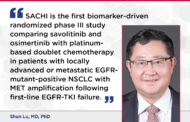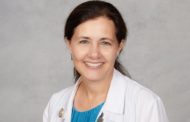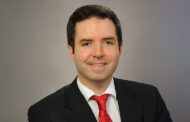In 1974, Drs. David T. Carr, Oleg S. Selawry, Lawrence Broder, Clifton Mountain, and George Higgins recruited more than 250 founding members from around the world and organized the first meeting of the International Association for the Study of Lung Cancer in Florence, Italy.
Now, 50 years and countless scientific advances in lung cancer later, Conference Chairs Sandip Patel, MD, Linda Martin, MD, Narjust Florez, MD, and Fabio Ynoe de Moraes, MD, PhD, MBA, have put together an educational program for the 2024 World Conference on Lung Cancer that not only highlights the latest science in thoracic oncology, it also celebrates the IASLC’s history-making advances from the past five decades.
ILCN recently spoke to Dr. Patel, Professor of Medical Oncology at the University of California San Diego, and Dr. Ynoe de Moraes, Radiation Oncologist and Director of the Global Oncology Program at Queen’s University, Kingston, Ontario, Canada, to learn more about the upcoming meeting, which will take place September 7-10 in San Diego.
ILCN: After two years of virtual meetings followed by meetings in Vienna and Singapore, the World Conference on Lung Cancer is returning to North America for the first time in several years. What are you most looking forward to about being in San Diego for WCLC 2024 and the 50th anniversary of the IASLC?
Dr. Ynoe de Moraes: I’m incredibly excited about WCLC 2024 taking place in San Diego, marking the return to North America after several years. The 50th anniversary of the IASLC makes this event even more special, providing an opportunity to celebrate the remarkable progress in thoracic oncology throughout the past five decades. Personally, I am looking forward to the dynamic exchange of ideas, reconnecting with colleagues from around the world, and experiencing the vibrant energy that only in-person meetings can provide.
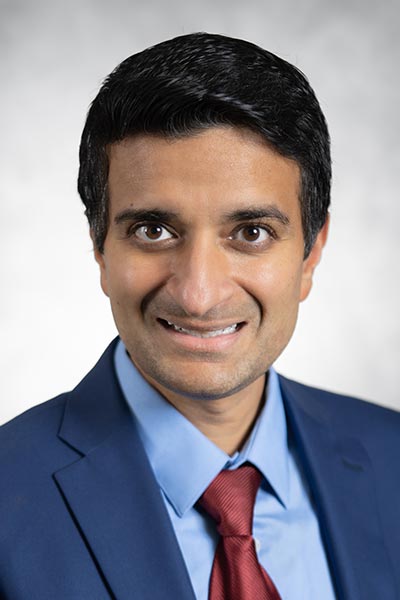
Dr. Patel: I am excited to celebrate the 50th anniversary of our fantastic society with colleagues and friends from around the globe. While we still have more to do for our patients, it is important to look back at how far we have come together in treating the leading cause of cancer-related death globally.
ILCN: As Conference Chairs, what were your goals for the meeting in terms of highlighting specific advances or research areas?
Dr. Patel: We wanted to emphasize the global nature of the fight against thoracic malignancies led by IASLC, which is unique in rallying the international community against lung cancers. In particular, we wanted to emphasize research amongst historically underserved populations as well as the latest advances in prevention, screening, and treatment.
Dr. Ynoe de Moraes: As Conference Chairs, our primary goal is to showcase the most groundbreaking advances in thoracic oncology. We aim to highlight key research areas such as precision medicine, immunotherapy, early detection, radiation oncology, and novel therapeutic approaches, including the use of artificial intelligence. Our objective is to provide a platform for presenting cutting-edge science and fostering discussions that can lead to new collaborations and innovations in thoracic cancer prevention, diagnosis, and treatment.
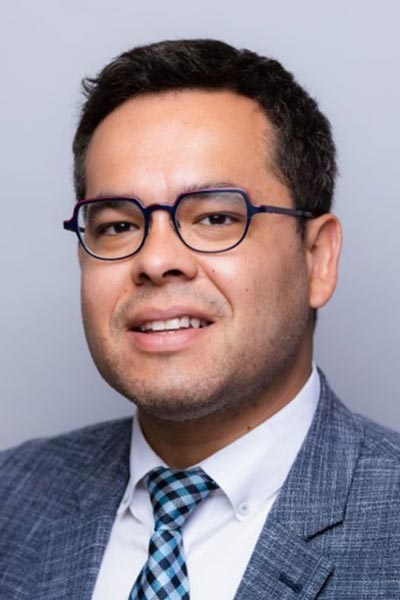
ILCN: As you planned the educational programming for WCLC 2024, what themes emerged among the latest science in thoracic oncology?
Dr. Ynoe de Moraes: During our planning, several themes emerged from the latest science in thoracic oncology. These include the integration of immunotherapy in the neoadjuvant setting, advancements in minimally invasive surgical techniques, the impact of radiotherapy treatment on cancer control and cure, and the role of personalized medicine in improving patient outcomes. Additionally, there is a strong focus on addressing health disparities, incorporating new technologies, and ensuring equitable access to care for all patients.
Dr. Patel: Advances in biomarker profiling, staging, and artificial intelligence across prevention and treatment modalities emerged as common themes. Additionally, the immense amount of global thoracic malignancy research focused on unifying all the specialties involved—ranging from lung cancer screening to treatment of metastatic disease—was evident in the abstract submissions. submissions.
ILCN: What sessions or presentations are you most looking forward to during WCLC 2024? As you think about the program are there any “must-see” presentations on your list?
Dr. Patel: I think the plenary sessions—especially the Special Plenary Session: Celebrating 50 Years of the IASLC, Legacy of Impact, Future of Promise—will absolutely be worth attending. There are many exciting presentations and educational sessions as well. Given the breadth and depth of the program, we hope there is something for everyone!
Dr. Ynoe de Moraes: There are numerous sessions and presentations that I am particularly looking forward to during WCLC 2024. Some of the “must-see” presentations for me include keynote addresses from leading experts in the field, panel discussions on the latest clinical trials, and innovative research on radiotherapy treatment and its integration with systemic therapy and surgery in both localized and metastatic settings. The plenary sessions, in particular, promise to deliver high-impact science and insights that can shape the future of thoracic cancer treatment and care.
ILCN: Beyond the science, what networking or social events are you looking forward to during WCLC 2023, and why?
Dr. Ynoe de Moraes: The networking and social events provide invaluable opportunities to build relationships with fellow researchers, clinicians, and industry partners. The IASLC 50th Anniversary Celebration will be a highlight, offering a chance to celebrate our collective achievements and foster a sense of community. Additionally, the informal gatherings and networking sessions are perfect for exchanging ideas and discussing potential collaborations in a relaxed setting.
Dr. Patel: I think the IASLC 50th Anniversary Celebration will be a unique and memorable social event, and I am very much looking forward to attending it amongst all the great sessions that are part of the program.


